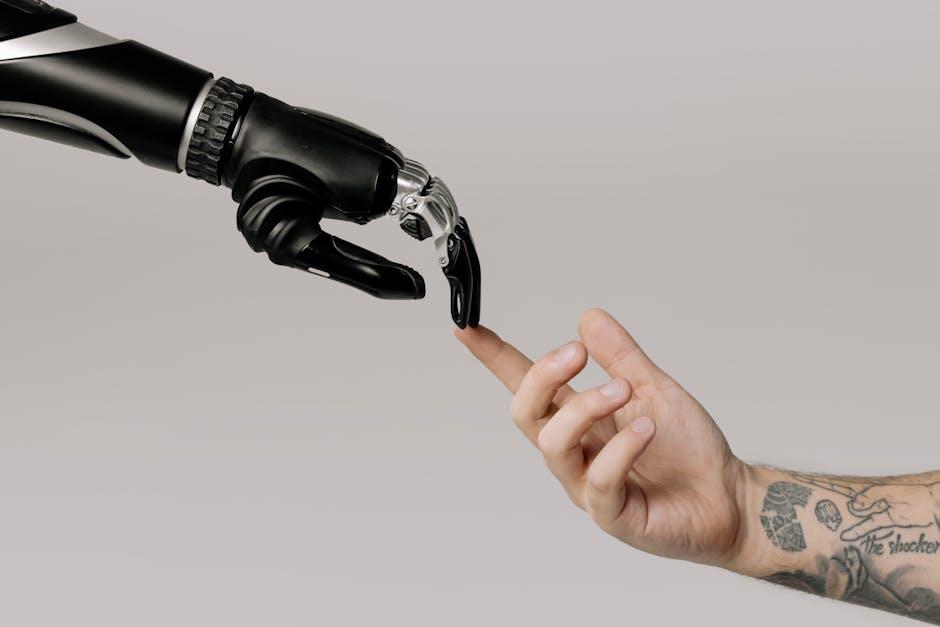In a world where the intersection of artificial intelligence and human innovation is continually evolving, James Lovelock emerges as a visionary voice, offering profound insights through his latest exploration in the realm of AI. Dive into the captivating world of his book as we unravel the intricate tapestry of intelligence, technology, and the essence of what it means to be human in the digital age. Join us on a journey through the pages of Lovelock’s compelling narrative, where the boundaries between man and machine blur, and the future of AI unfolds before our eyes.
Table of Contents
- Exploring James Lovelock’s Unique Perspective on Artificial Intelligence
- Unveiling the Impact of AI on Environmental Science in James Lovelock’s Book
- Insights into James Lovelock’s Vision for the Future of AI and Gaia Theory
- Recommendations for Integrating James Lovelock’s Ideas on AI and Sustainability
- Q&A
- Key Takeaways
Exploring James Lovelock’s Unique Perspective on Artificial Intelligence
James Lovelock’s exploration of Artificial Intelligence offers a thought-provoking journey into the evolving relationship between humans and technology. In his book, Lovelock delves deep into the implications of AI on our society, environment, and even our own existence.
<p>Through his unique perspective, Lovelock challenges conventional views on AI, inviting readers to ponder the potential consequences of creating intelligent machines. His insights spark conversations on the ethical, philosophical, and practical considerations surrounding the integration of AI into our lives.</p>
Unveiling the Impact of AI on Environmental Science in James Lovelock’s Book
James Lovelock’s exploration of the intersection between AI and environmental science in his latest book is a groundbreaking journey into the future of our planet. Through meticulous research and visionary insights, Lovelock delves deep into how artificial intelligence is revolutionizing our understanding of environmental challenges and paving the way for innovative solutions.
By examining the symbiotic relationship between AI technologies and environmental science, Lovelock uncovers untapped potential for addressing pressing issues such as climate change, biodiversity loss, and sustainable development. Through captivating narratives and thought-provoking analysis, he presents a compelling case for embracing AI as a powerful ally in preserving the delicate balance of nature.

Insights into James Lovelock’s Vision for the Future of AI and Gaia Theory
James Lovelock’s groundbreaking views on AI and the Gaia Theory spark a new wave of contemplation. In his latest book, Lovelock delves into the profound connection between the evolution of artificial intelligence and the delicate balance of our planet. Through a thought-provoking exploration, he sheds light on how AI could potentially impact the intricate web of life on Earth.
Unraveling the mysteries of nature and technology, Lovelock invites readers on a journey of discovery, where the realms of human ingenuity and planetary consciousness merge. With a focus on symbiosis rather than separation, his visionary outlook challenges us to rethink our relationship with intelligent machines and the biosphere. As we navigate the intersection of AI and Gaia Theory, profound insights emerge, igniting a deeper understanding of our place in the cosmos.
Recommendations for Integrating James Lovelock’s Ideas on AI and Sustainability
Exploring the intersection of James Lovelock’s visionary concepts with the realms of artificial intelligence and sustainability opens up a realm of innovative possibilities. Considering Lovelock’s Gaia hypothesis and insights into the Earth as a self-regulating system, one can harness AI to amplify sustainability efforts.
By leveraging AI technologies to monitor, analyze, and optimize ecological systems, we can advance towards a more harmonious relationship between humanity and the environment. Implementing Lovelock’s principles alongside AI solutions can pave the way for a future where technology acts as a steward of nature, fostering a sustainable coexistence.
Q&A
**Q&A: James Lovelock’s AI Book**
Q: Who is James Lovelock and what is his connection to AI?
A: James Lovelock is a renowned environmentalist, futurist, and creator of the Gaia hypothesis. In his latest book, he delves into the fascinating intersection of artificial intelligence and the future of our planet.
Q: What inspired James Lovelock to explore AI in his book?
A: James Lovelock’s deep concern for the Earth’s future and his curiosity about the role of AI in shaping that future inspired him to delve into this topic.
Q: How does James Lovelock approach the topic of AI in his book?
A: James Lovelock brings his unique perspective to the discussion by exploring how AI could be a game-changer in addressing environmental challenges and sustainability issues.
Q: What can readers expect to learn from James Lovelock’s AI book?
A: Readers can expect to gain insights into the potential of AI to revolutionize the way we approach environmental issues and create a more sustainable future for our planet.
Q: Why is James Lovelock’s perspective on AI important in today’s world?
A: James Lovelock’s perspective on AI offers a fresh and thought-provoking take on how technology can be harnessed to tackle pressing environmental concerns, making it a timely and crucial read for those interested in the intersection of technology and sustainability.
Key Takeaways
In conclusion, James Lovelock’s exploration of artificial intelligence in his latest book opens the door to thought-provoking insights and a deeper understanding of our future relationship with technology. As we navigate the ever-evolving landscape of AI, Lovelock’s perspective challenges us to reflect on our place in this digital age. Whether you’re a tech enthusiast, a futurist, or simply curious about the intersection of humanity and AI, this book invites you to ponder the possibilities and consequences that lie ahead. Embrace the journey of discovery, and may your thoughts on AI be as dynamic and innovative as the technology itself. Thank you for joining us on this enlightening exploration.



0 Comments